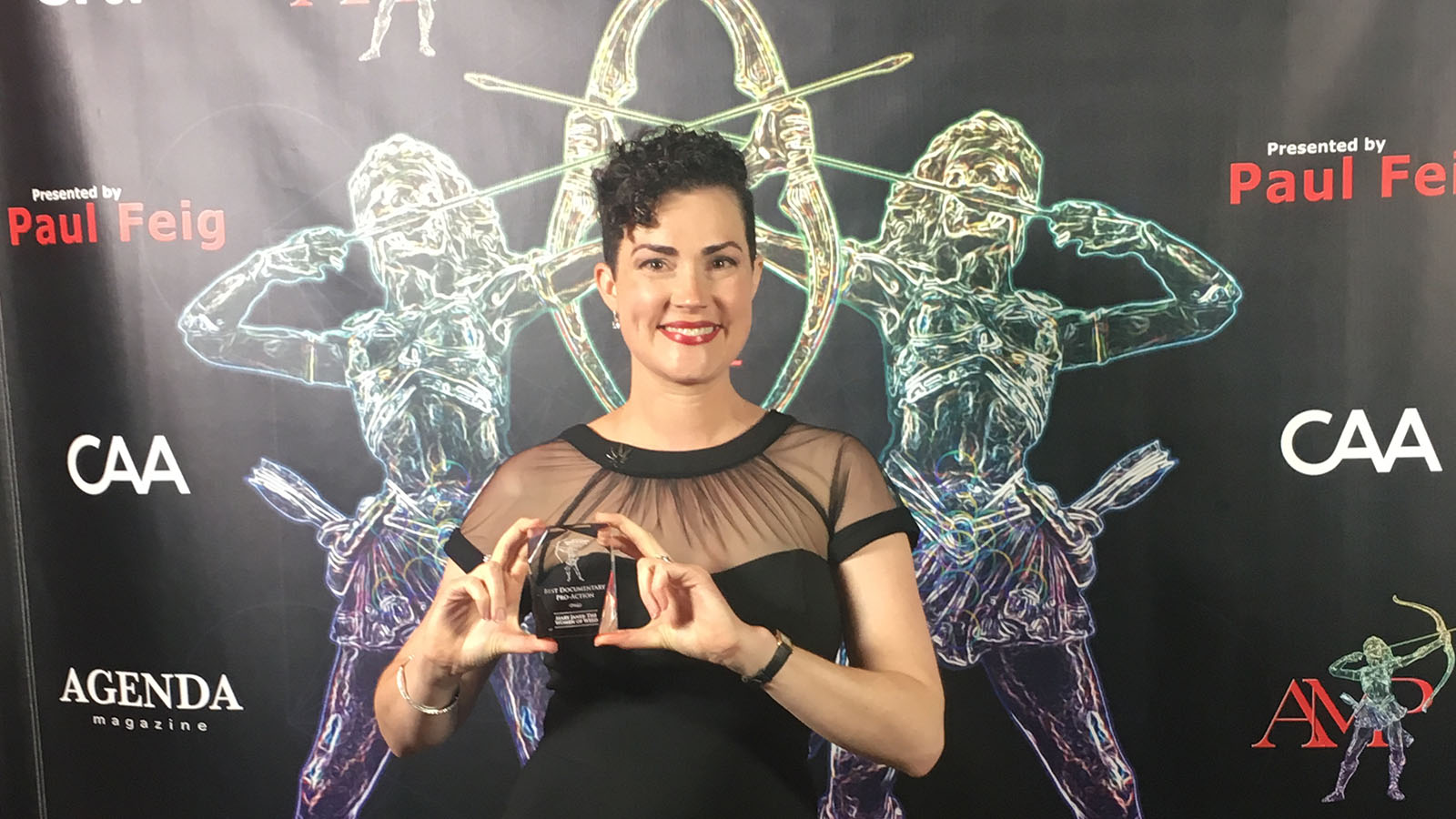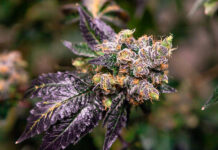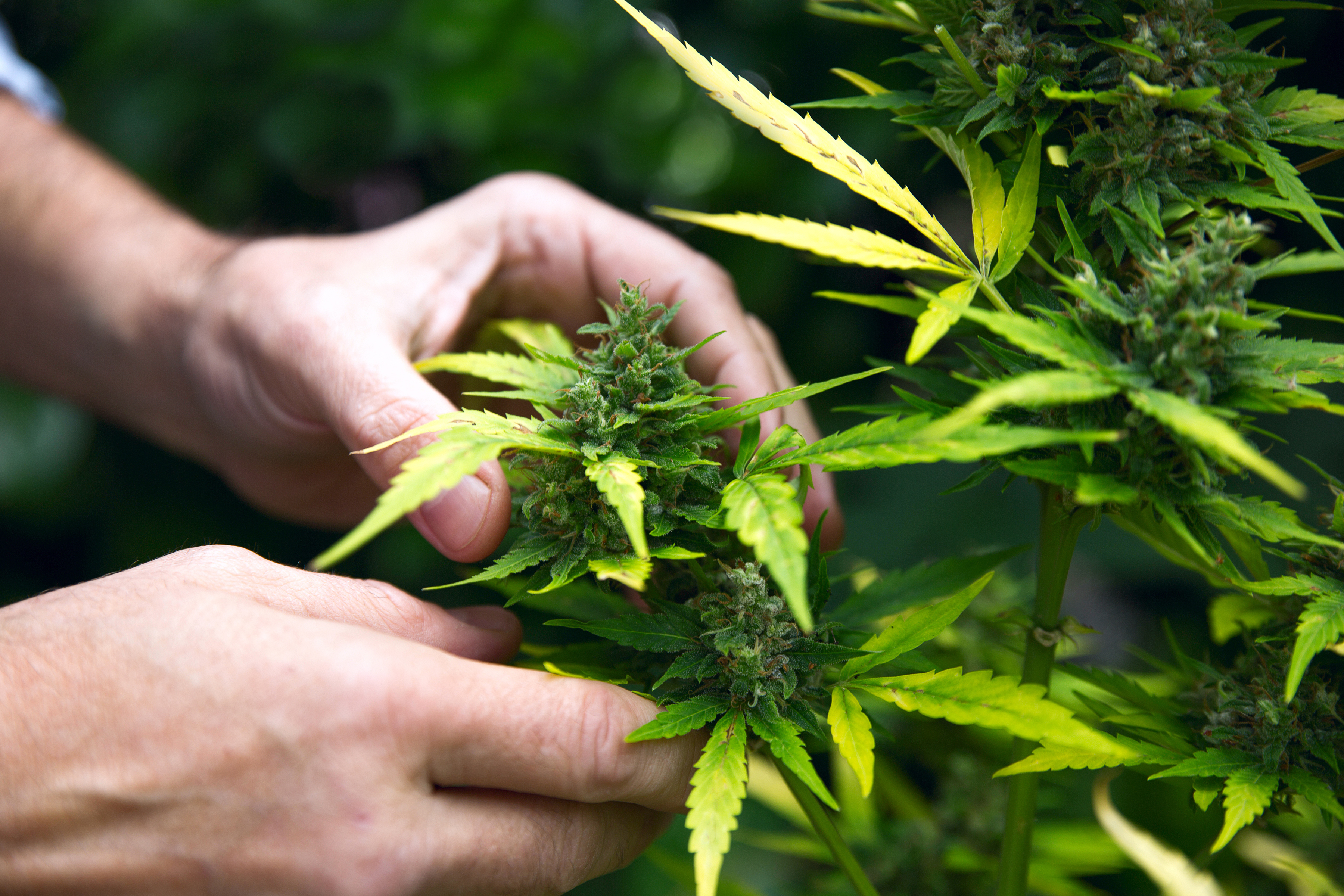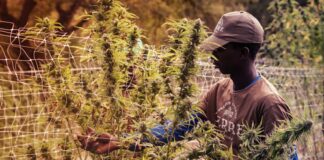Windy Borman had never smoked weed when she moved to Colorado in 2014. But one thing about the state’s emerging industry intrigued her: 36 percent of people in senior leadership positions in the cannabis industry were female, compared with 22 percent across all industries.
She also realized that leaders of the cannabis industry were having the kinds of discussions about social justice and sustainability that other industries should be having. This discovery inspired her to create the documentary “Mary Janes: The Women of Weed.”
In the film, which includes interviews with female cannabis activists, business owners, and other “puffragettes” — women and men who work for gender parity, social equity, and environmental sustainability in the marijuana industry — Borman explores how women have taken leadership in the cannabis industry, how pharmaceutical companies have made people rely on prescription drugs instead of cannabis, and how the cannabis industry is setting an example for other industries that are less heavily scrutinized. At the very end, she gets stoned for the first time.
Despite winning Best Documentary at the Artemis Film Festival and the Visionary Award at the Palm Springs Cannabis Film Festival, both in Southern California, “Mary Janes” has had trouble promoting itself. Facebook attempted to shut down the account when it tried to promote the movie’s crowdfunding campaign in 2016, and in October 2018, Facebook removed a post congratulating Canada on legalizing marijuana.
Weedmaps News spoke to Borman about the motives behind this kind of censorship, why women in weed are having a moment, and what our culture gets wrong about cannabis.
This interview has been edited for length and clarity.
Q: What were the most surprising things you found in your research for the film?
A: There were two things that really surprised me. The first was that when you looked at how many people were incarcerated each year for simple cannabis possession, it’s between 700,000 and 800,000 people in the United States. That’s a huge number. You just look at these statistics and realize people of color are three times more likely to be arrested for cannabis possession, and we know cannabis use is the same across the board.
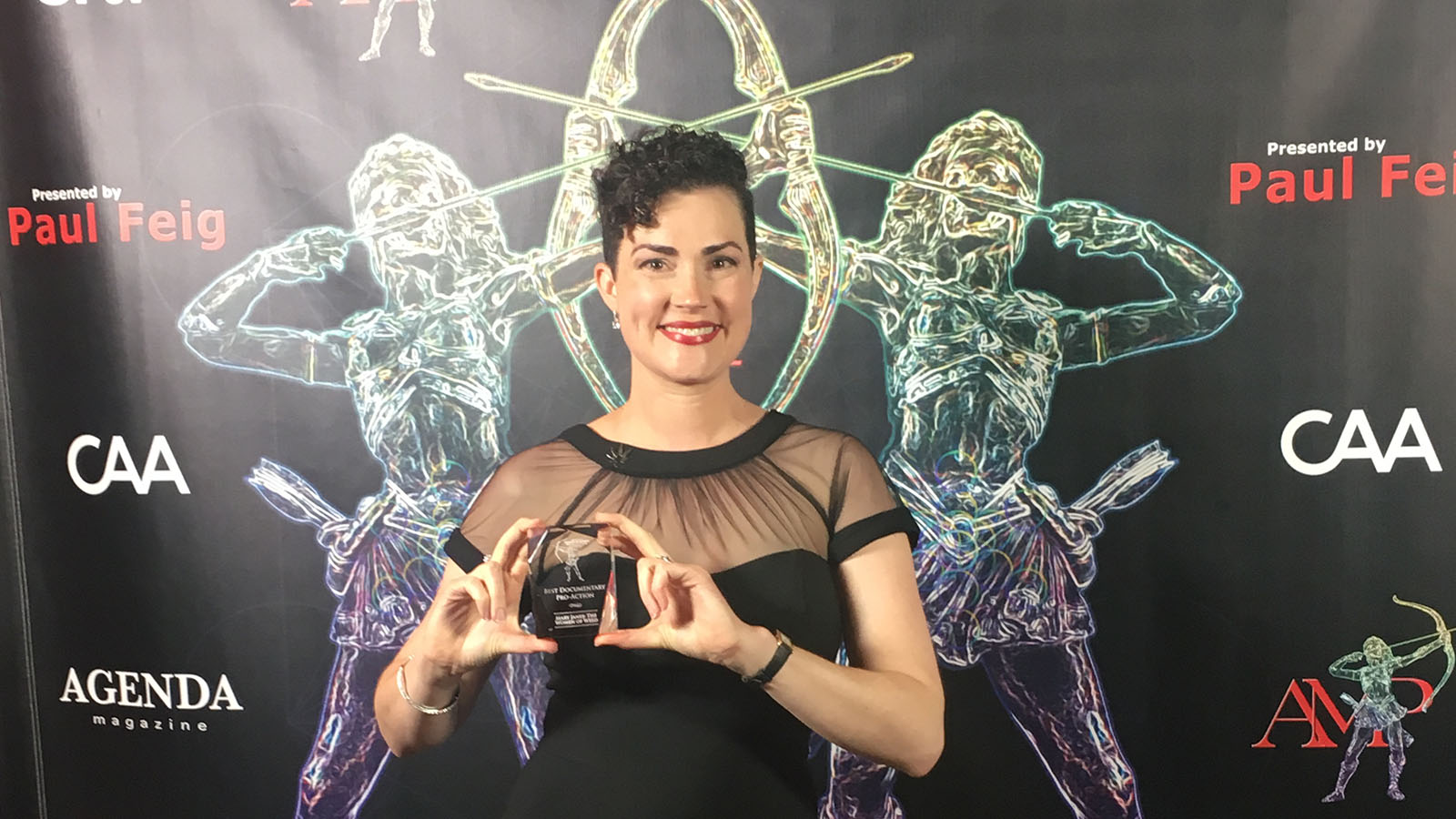
Windy Borman is awarded Best Documentary for “Mary Janes: The Women of Weed” during the 2018 Artemis Film Festival gala April 26, 2018, in Beverly Hills, California. Borman said Facebook shut down the film’s promotional account twice: once during a 2016 crowdfunding campaign, and a second time in 2018 after congratulating Canadians for allowing adult-use marijuana legalization nationwide Oct. 17. (Photo by Knock Out Performance)
The other thing that was surprising was just how long the dogma of the “just say no, marijuana’s a gateway drug” stuff stayed with me. It really took showing an early version of the film to a test audience and them saying, “You started out as this big skeptic. You need to try cannabis by the end of the movie and put it at the end of the film.” I was like, “You’re right. I know enough now. If I can just educate myself about how to use it responsibly and safely, you’re right. I should.”
Q: You talk in the film about the misconceptions you learned about cannabis that scared you away from it. Where do you think these myths come from?
A: I think the myths are all around us. Each community and generation has their own version of them.
I think some of the stigmas for women, for why they might hesitate to try cannabis or come into the industry, come from a similar place of them just not seeing themselves in the industry. When we think about cannabis, we have this stoner dude mentality, and so representation in the media really matters. As Geena Davis says, “If you can see it, you can be it.” And I really took that to heart as a filmmaker. I was going to show the women leading this industry. I wanted to show different ages, races, sexual orientations, body types — all of it — and have a wonderful cross-section of what it looks like to be a woman in the industry.
I recognize I was coming from a privileged position. I wasn’t going to lose my job. I didn’t have kids. I don’t have a lease that prevents me from consuming cannabis. I wasn’t going to be kicked out of housing. So if I could educate people and flip the script for what it looks like, how you can consume cannabis and how it can be a safe, inviting thing you consume with your girlfriends, I hope we’re chipping away at the stigma and the stereotypes of what a cannabis user looks like.
Q: What was your experience trying cannabis like?
A: It was wonderful. I’ve heard from so many women that the first time they tried cannabis wasn’t totally consensual. They were passed it at a party, there was peer pressure, a male had purchased it. If I could flip the script, go to the dispensary, purchase the cannabis myself, and then invite people to guide me on this experience, I wanted the chance to do that.
It felt really nice to have that group of women, who I affectionately call my cannabis fairy godmothers, because they were able to guide me through it. We had a designated driver to take me home. I was in a safe environment. Nobody was going to take advantage of when I was high.
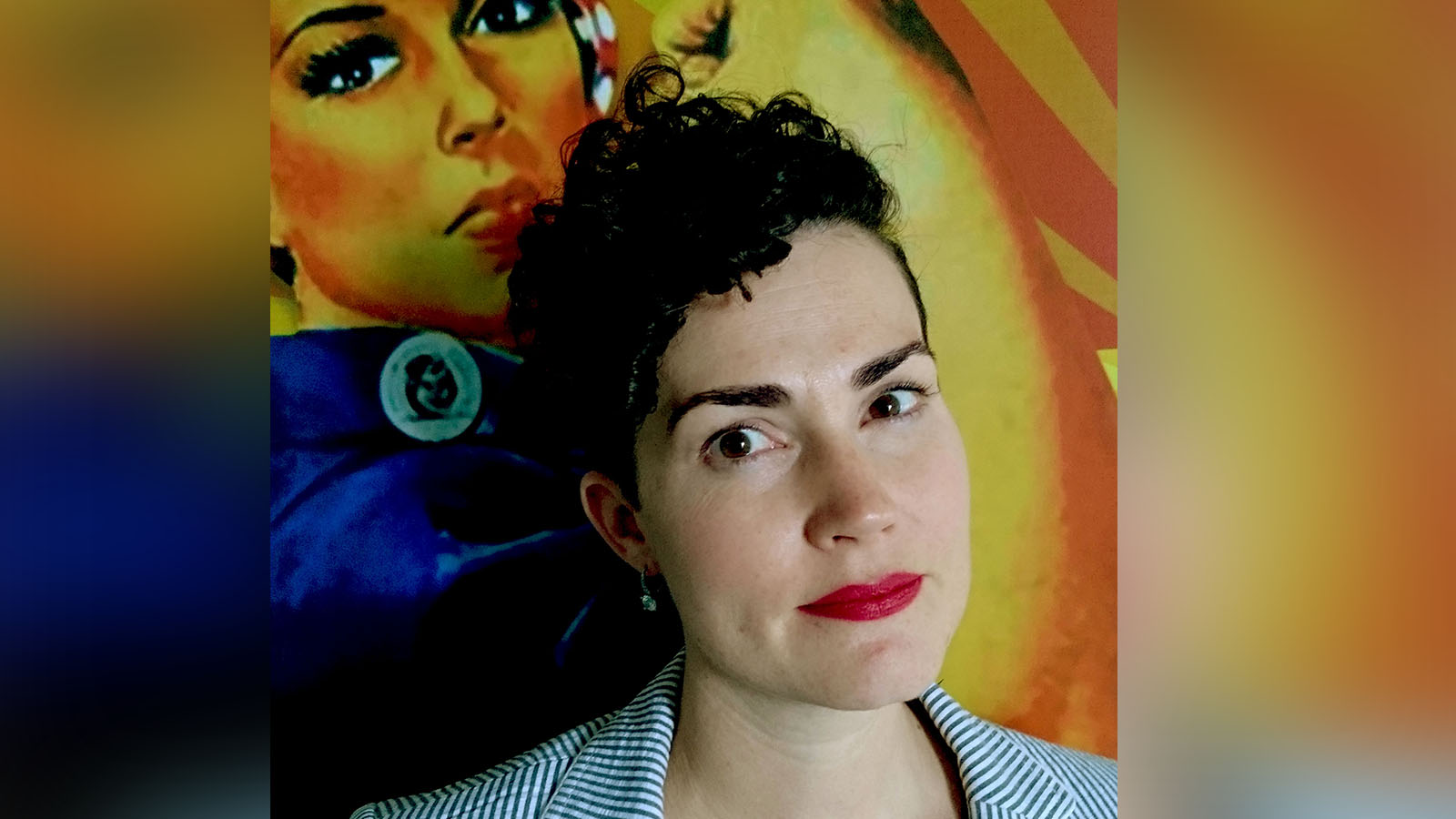
Though she made a documentary about female canna-preneurs, “Mary Janes: The Women of Weed,” Windy Borman never consumed marijuana until she recorded her first sesh.
I hear from the audience after that scene, two things: “Where can I purchase products from women and minority companies?” and “Who can I talk to about using cannabis?”
It becomes this really educational and empowering moment for the audience and invites them into that world where they’re like, “Well, if Windy did it, maybe I can do it, too.”
Q: Why do you think the cannabis industry has a higher proportion of female leaders than others?
A: The first reason is women are smart. They see the same opportunity everybody else sees, but I think the big opportunity is that women get the chance to be the CEO, and they then can create the products that are going to fit into their lifestyle. So, on the one hand, more leaders are attracted to it because there isn’t a white man ahead of them. They can hire the team they want to work with and create a corporate culture they can work for. If we leave it to men to decide what women want, they’re going to take what they want and make it smaller and pink. So, if we want something to fit into our lifestyles, we have to develop it ourselves.
Q: How else do you see the cannabis industry advancing feminism?
A: The biggest thing we can shift is in wealth creation. If we can put money in the hands of women and people of color and people from the LGBTQ community, all the other challenges that those communities are facing start to go away because we value people’s wealth and their worth so much more than the rest of their humanity. If we are literally paid the same, that’s a game-changer because nobody’s work is valued more than anybody else’s and we can create generational wealth in those communities.
Q: Facebook has repeatedly censored posts from the movie’s account. What do you think was behind that decision?
A: The most egregious [act of censorship] was we weren’t able to celebrate women’s right to vote [on Facebook]. So at that point, this is not about cannabis. It’s about influencing democracy, and they don’t want women to participate in that. At that point, there’s no policy. They’re just swinging and seeing what they can hit. Their excuse was we weren’t authorized to run that type of ad. At the top of the page, they were encouraging us to tell them how we’re voting. Threats to democracy and freedom of speech never go away, but now specifically women and the media have a target on their back.
Q: Where do you see the cannabis industry headed next?
A: The industry’s at a real moment when it needs to make some key decisions. In 2017, the female leadership had dipped to 27 percent. I think that’s a result of states that have legalized. When we had states like California and Massachusetts come on board, that opened the door for more traditional funding. We just had four more states vote on cannabis [on Nov. 6, 2018], and Canada’s legal, so we have outsiders who have been waiting in the wings for us to fund cannabis, and they’re looking for a specific kind of business, and that’s usually where old rich white guys give other old rich white guys money. They’re not necessarily investing in the companies of the activists.
I also see where we still have work to do in states about expunging records for nonviolent drug offenses and getting people out of prison for those charges for things that are now legal. So it’s going to be interesting to see where the whole industry goes to solve this social justice piece and also what we do with the gender piece. Are we as an industry going to demand that we do business differently, or are we going to be mesmerized into doing business as usual?


